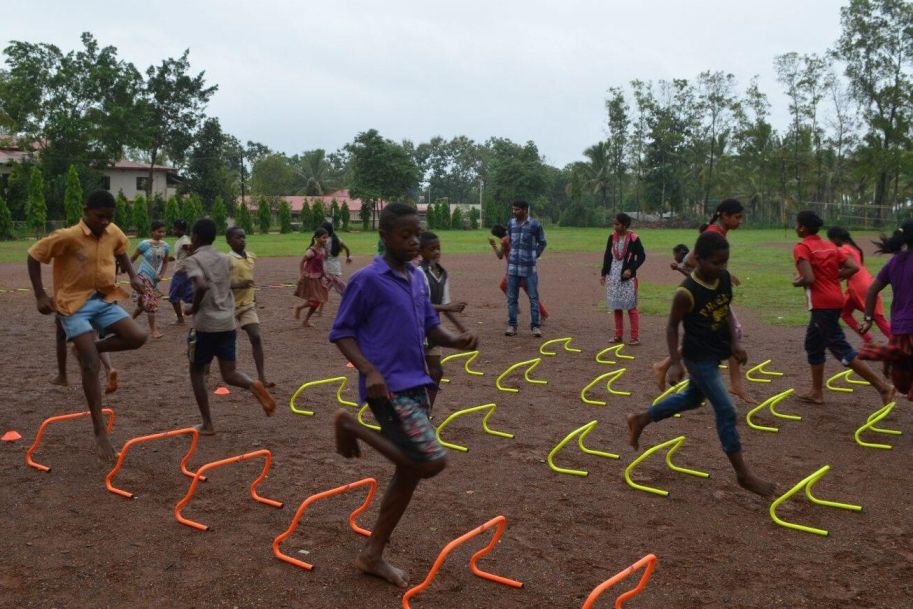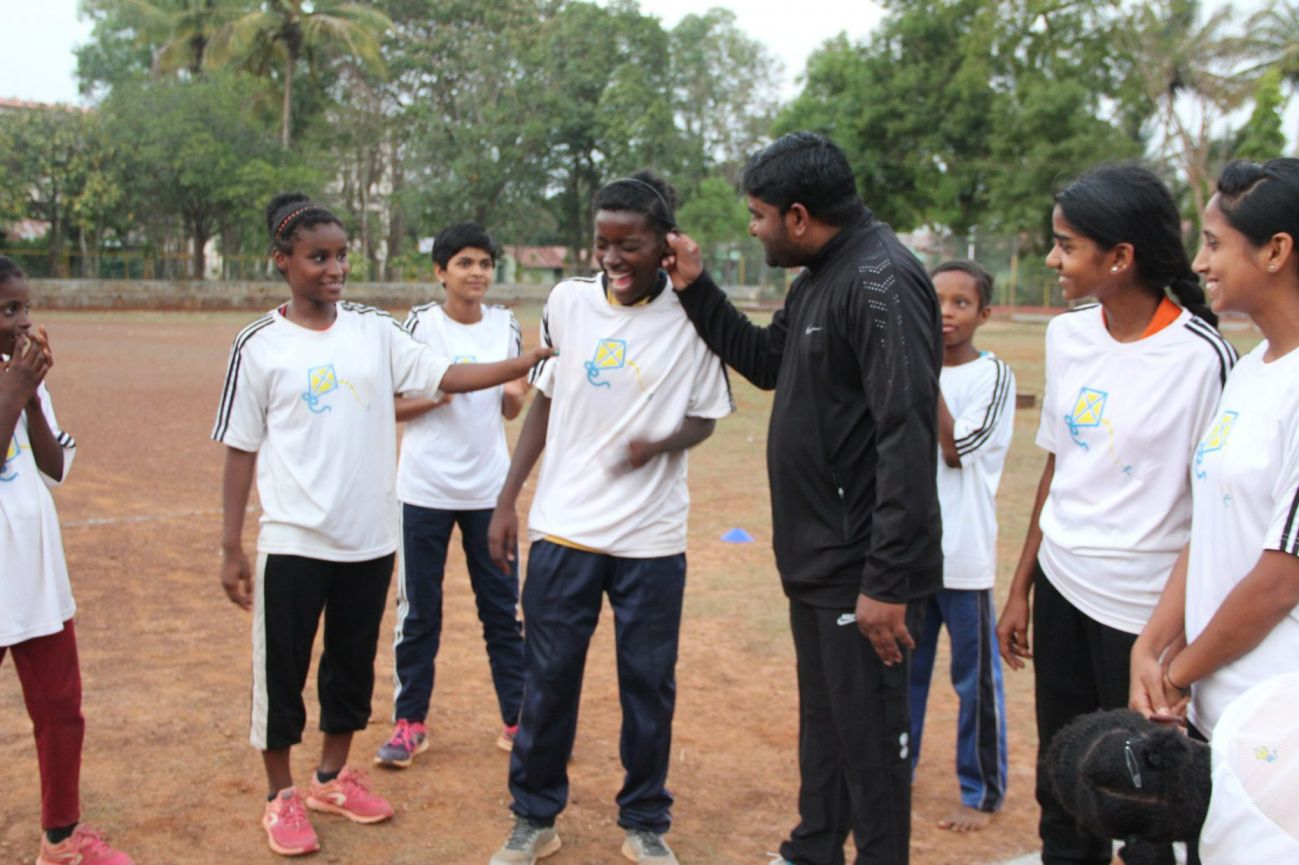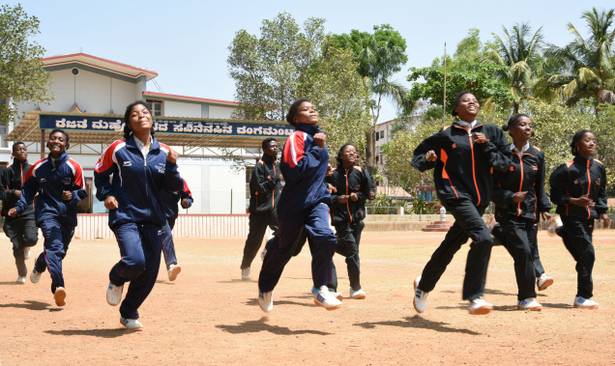#MakingSportWork: We celebrate the potential of sport to build a #BetterIndia with opinion pieces, stories and profiles of how sport can improve the lives of every Indian. Read more from this exclusive series by The Better India and Sports and Society Accelerator here.
Nitish M Chiniwar had set his sights on a career in motorsports. He had worked in garages in Bengaluru, getting his hands dirty as he learned the ins and outs of engines.
Then he moved to the United Kingdom, where he earned his Masters’s in Motorsports Engineering. But when he began interviewing with racing teams, including some F1 teams, he kept hitting the same wall. As a non-European, Chiniwar needed a work visa but none of the teams were willing to sponsor one.
Finding his path unexpectedly blocked prompted Chiniwar to think deeply about opportunities, specifically who gets them and who doesn’t. Going down that path led him to a new career.
So, in 2016 he founded Bridges of Sports (BoS), a not-for-profit organisation that is dedicated to developing the next generation of Indian athletes while also creating opportunities for neglected tribal communities to become part of mainstream society.
The first community they worked with was the Siddi community in Karnataka. The Siddis were brought to India from Africa as slaves over 400 years ago. After Indian independence, they wound up living apart from mainstream society and have struggled with racism and poverty.
To identify promising young athletes, BoS worked with the Uttara Kannada District Athletic Association to conduct training camps and monitor athletic competitions across all talukas for the U-12, U-14, and U-16 categories. Those athletes who met qualifying standards were then invited to the main residential centre for testing and training to help them develop to their full potential.
“Our focus has always been to build a hyperlocal sports ecosystem which will not only produce sustainable talent but also support the social and economic development of the community,” the now 32-year-old Chiniwar says. “Over the years, we are seeing the results of our strategy and the opportunities for the model to be replicated at scale.”
Currently, the organisation has 25 children enrolled in their track-and-field centre of excellence in Mundgod, Karnataka, and is in the process of supporting another 240 children from the Adivasi communities in Nashik, Maharashtra.
Over the last six years, they have helped more than 10,000 kids.

According to Chiniwar, the biggest challenge they have faced so far has been convincing the members of the community to buy into the project. They solved that problem by including the community in its core team of coaches, sports scientists, and physios to the point where 60% of the team is now local. In addition, it has also built a network of community volunteers who help scout athletes and conduct training camps and competitions in the villages.
“With our model, the community has now become stakeholders of the project,” Chiniwar says. “More families are now open for their children to pursue sports as one of the career options and they understand that with BoS and the local ecosystem, their children would at least become part of the coaching, scouting and administration system if they are not able to achieve international success.”
Chiniwar and his team also convinced schools and colleges in the area to provide free admission to its athletes, which gives the community another reason to support the programme.
Getting the community on their side has been one of the high points so far for Tenzin Choejor Zongpa, the sprint coach and head of performance at BoS. Tenzin was born in Mundgod, though his parents are originally from Darjeeling. He has a degree in Physiotherapy and was working in a hospital in the Western Ghats when he read a few articles about India’s athletic performance at the 2016 Rio Olympics. “It made me question why to date we as a nation have missed two medals (Ed’s note: Milkha Singh in 1960 and PT Usha in 1984) in athletics by a whisker and never came close other than that,” he says.
He decided he wanted to do something about India’s lack of athletic medals and went back to school to get his Master’s in Exercise and Sports Sciences from Manipal University. During his final year in 2019, a team from BoS visited their Sports Science Lab with some of their athletes. The more Tenzin learned about them, the more it seemed like a natural fit for him, and he joined them in July 2019.
“As a coach at BoS, it’s easier to track down and work on certain things that are needed to improve the athletes at both the performance level as well as a person, because we have a home-like system where everyone lives together,” Tenzin says. “The feeling of family makes the conversation easier and clearer with both the athlete as well as their parents.”
He also stressed the need to involve families in decisions regarding their children and to give them regular updates as a way of gaining their trust and confidence.
To determine the success of their programmes, the organisation uses training data and race performance as well as measuring the psychological and social development of the athlete. “Our long-term success is defined by success in sports along with the employment of athletes who were part of the BoS system but might not have achieved success as an athlete,” Chiniwar says.
Coping during COVID

The lockdown threw up a new challenge for the organisation, as it couldn’t run its regular programmes. Moreover, the Siddi community (employed as casual labourers) lost most of its income since there was no work for them. Chiniwar and his team came up with the idea of helping five families start their own kitchen gardens to provide an alternate source of income for the community. As an added benefit, growing their own food would ensure better nutrition for their children too. BoS then went a step further and bought the produce for their hostel.
“We realised that working closely with the community outside of sports and supporting them during tough times will help build resilience for the programme itself,” Chiniwar says.
More recently, they have set up a scholarship system that rewards athletes as they progress from winning state medals to national medals by supporting their families with financial or in-kind assistance.
The coaches also benefit from being part of the organisation. Tenzin, for example, was able to complete his World Athletics Level 1 Coaching Certification from NIS Patiala in 2020. And in July this year, Tenzin travelled to the UK to work and train at ALTIS, a leader in sports performance education that also offers an elite training environment.
The now 19-year-old national champ Kokare has also travelled with Tenzin to ALTIS to train.

Kokare was 16 when she entered a local competition organised by BoS after her teacher convinced her to compete in the 100m and 200m races. Kokare had never raced competitively before and ran barefoot, yet she qualified in both events. “I didn’t know anything,” she says in a phone interview. “Sir told me to run and that I might get a prize.”
At first, her parents were reluctant to let her leave home and live in a hostel by herself. “They were scared,” Kokare says. But the BoS team convinced her parents that it was safe for their daughter and that they would help both Kokare and her parents. Over time Kokare dropped the 100m and turned into a 400m runner instead (she also competes in the 200m). Two years later she justified the decision by winning bronze in the Girls-Under 18 400ms 400m at the 2021 Nationals with a personal best time of 58.31.
“I have got an opportunity and I want to take advantage of it,” she says. “I want to show my people what we can achieve and also bring a good name to the village.”
Along with her training, Kokare is studying commerce at the Government Composite Pre-University College in Mundgod. But her ambition now is to represent India and win an international medal. Her idol and inspiration is Allyson Felix, the legendary American 200m and 400m runner, who is one of the most decorated track & field athletes of all time.
Training outside the country and meeting other athletes from all over the world for the first time has given Kokare added motivation and belief. “If they can do it, we can do it, and we can do it better too.”
Written by Team Billion Plus; Edited by Yoshita Rao